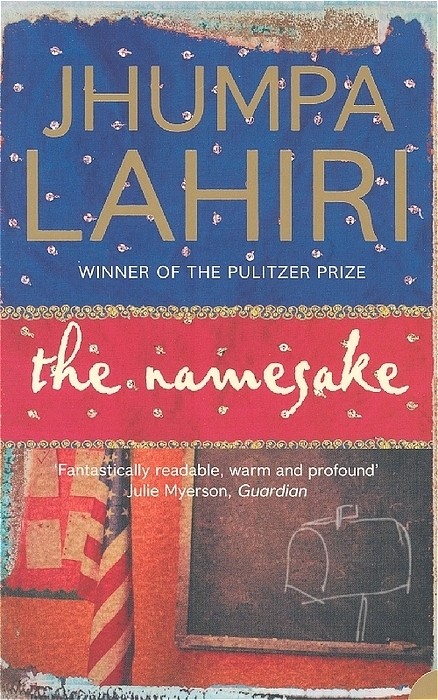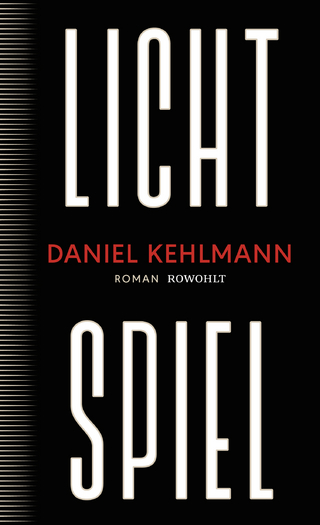
The Namesake
2004
HarperPerennial (Verlag)
978-0-00-719607-4 (ISBN)
HarperPerennial (Verlag)
978-0-00-719607-4 (ISBN)
- Titel erscheint in neuer Auflage
- Artikel merken
The Namesake is the story of a boy brought up Indian in America, from 'the kind of writer who makes you want to grab the next person and say "Read this!"' (AMY TAN)
Gogol Ganguli is headed to paradise, a place of satisfaction and fulfilment. He doesn't really know it as he travels through his life toward this destination. He is only aware that he is not quite at ease with himself, and for a long time he thinks it's all because of his name…
His journey begins by train. But Gogol is not on it. Rather it was a train whose fateful journey gave his father, Ashoke Ganguli – a Bengali in America, awkward in his new surroundings – both a brush with mortality and the name of his firstborn son. Brought up as an Indian in suburban America, Gogol finds himself itching to cast off the inherited values and priorities that his parents drape over him. He escapes into Education and is educated above all in new ways of living, new ways of making a family, new ways of being married. He is shown a perfect home, then – to his delight and surprise – invited in to it, for good. But still he wears that Russian's name, still he is an Indian in America, and, once you get to the furthest point there, there's nowhere else to go but back.
In The Namesake, Jhumpa Lahiri presents her reader with the entirely satisfying novel that those who loved the clarity, sympathy and grace of her prize-winning debut, the story collection Interpreter of Maladies, longed for and anticipated. It is a triumph of humane story-telling.
Gogol Ganguli is headed to paradise, a place of satisfaction and fulfilment. He doesn't really know it as he travels through his life toward this destination. He is only aware that he is not quite at ease with himself, and for a long time he thinks it's all because of his name…
His journey begins by train. But Gogol is not on it. Rather it was a train whose fateful journey gave his father, Ashoke Ganguli – a Bengali in America, awkward in his new surroundings – both a brush with mortality and the name of his firstborn son. Brought up as an Indian in suburban America, Gogol finds himself itching to cast off the inherited values and priorities that his parents drape over him. He escapes into Education and is educated above all in new ways of living, new ways of making a family, new ways of being married. He is shown a perfect home, then – to his delight and surprise – invited in to it, for good. But still he wears that Russian's name, still he is an Indian in America, and, once you get to the furthest point there, there's nowhere else to go but back.
In The Namesake, Jhumpa Lahiri presents her reader with the entirely satisfying novel that those who loved the clarity, sympathy and grace of her prize-winning debut, the story collection Interpreter of Maladies, longed for and anticipated. It is a triumph of humane story-telling.
Jhumpa Lahiri was born in London of Bengali parents, and grew up in Rhode Island, USA. Her stories have appeared in many American journals, including the New Yorker. Interpreter of Maladies, her first published collection, won the Pulitzer Prize 2000 for Fiction, the New Yorker Prize for Best First Book, the PEN/Hemingway Award and was shortlisted for the Los Angeles Times Award. Jhumpa Lahiri lives in Brooklyn.
| Erscheint lt. Verlag | 5.7.2004 |
|---|---|
| Verlagsort | London |
| Sprache | englisch |
| Maße | 111 x 178 mm |
| Gewicht | 162 g |
| Themenwelt | Literatur ► Romane / Erzählungen |
| ISBN-10 | 0-00-719607-5 / 0007196075 |
| ISBN-13 | 978-0-00-719607-4 / 9780007196074 |
| Zustand | Neuware |
| Haben Sie eine Frage zum Produkt? |
Mehr entdecken
aus dem Bereich
aus dem Bereich


